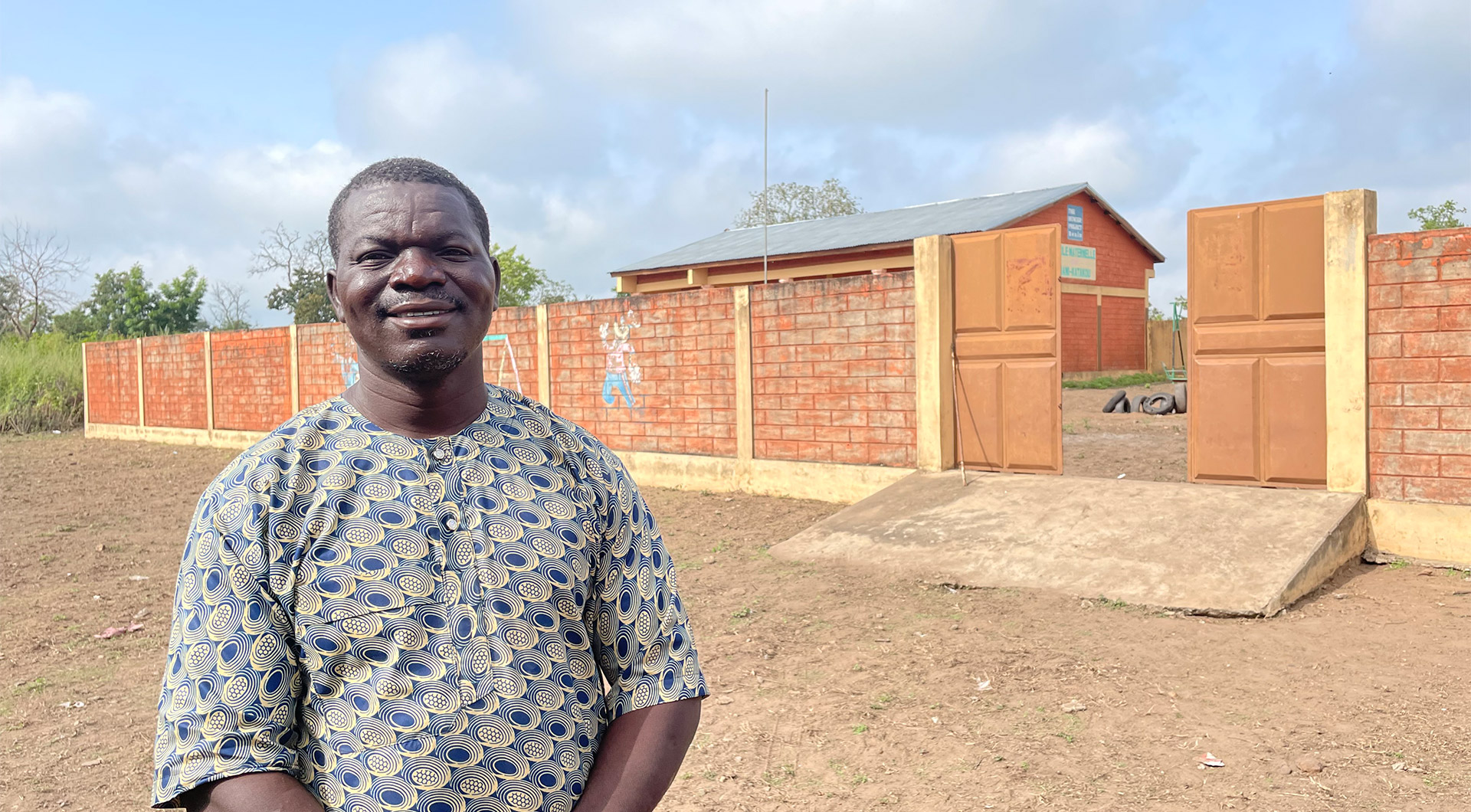The Hunger Project’s goal is to end world hunger. Our approach is different – we see people living in hunger as the solution, not the problem. We shift the mindsets of women and men so…
How farmers like Moïse are adapting to a shifting climate
As a smallholder farmer, Moïse was used to living on the edge, with increasingly unpredictable weather and growing seasons affecting his ability to provide for his family. Across the region, climate change has meant reduced rainfall, extended dry spells and inconsistent weather patterns As a result, soil productivity has greatly decreased and land that was once sufficient for crops, no longer yields as it used to.
Moïse knew he needed assistance to learn how to deal with the effects of the climate crisis. As part of its efforts to build food security and climate resilience, The Hunger Project provides essential training to farmers like Moïse to adopt more sustainable farming practices.
Equipped with solutions, he now uses a variety of innovative farming techniques like crop rotation and strategic land use that maintain soil health and improve harvests.
Moïse and the others in his training have not kept this knowledge to themselves. Organising workshops, they disseminate the information and techniques they’ve learned, urging fellow farmers to adopt these methods.
As Moïse says proudly, “It’s not just about adapting but sharing knowledge that can safeguard the future of my community in the face of climate change…I see it as my job and responsibility to share the knowledge I have gained, to share it with my fellow villagers. Because it really has an impact.”

We needed these trainings to learn how to deal with the effects of the climate crisis.
I see it as my job and responsibility to share the knowledge I have gained, to share it with my fellow villagers. Because it really has an impact.

Make your
impact count
Food & Nutrition
-
18,705
children receiving weight or nutrition monitoring in 2022
-
1,005
children with a nursery school food program in 2022
-
27,295
People trained in nutrition and food processing in 2022
Equality & Empowerment
-
2,000,000
people have participated in our Vision, Action and Commitment workshops across all of our Program Countries since 2008
-
1,100,000
People have participated in HIV/AIDS and gender inequality workshops in Africa since 2008
-
531,094
women have participated in our leadership training since 2008
Education & Digital Equality
-
220,000
adults have enrolled in adult literacy in Africa since 1999
-
53,160
people have been trained in Safe School for Girls workshops in Bangladesh
-
16,555
Animators (volunteer leaders) have been trained in literacy and education in Africa since 1999
Water & Health
-
992,043
children vaccinated in Africa since 1999
-
58,895
People trained in water and hygiene program globally in 2022
-
198,660
Bed nets to prevent malaria distributed
Climate & Environment
-
112,228
People trained in climate adaptation workshops since 2008
-
42,245
people trained in food security in 2022
-
16,360
Women trained in climate adaptation workshops in 2022
